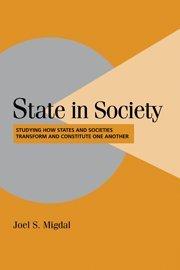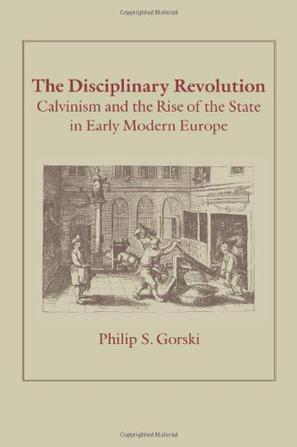-

選舉制度設計手冊
本書英文原版為Electoral System Design,由位於瑞典的政府間機構The International Institute for Democracy and Electoral Assistance (IDEA) 組織各國研究選舉制度設計的學者編寫,是一本認識選舉制度的入門手冊。 本書概述不同選舉制度的設計及其效果,介紹了不同選舉制度的具體運作過程,扼要分析各種制度的適用性、可行性、優缺點以及對政治發展、政黨建設和政府管治、政策制定的影響。書中並列出十個標準,用來判斷哪一種選舉制度最適合某一特定社會,並收錄18個國家和地區選舉制度設計和改革的案例,進一步說明不同制度在各國執行的成效。 本書集合制度設計研究學者的智慧,期待能達成兩個目的:一是擴闊選舉知識,啟發公共討論;二是為憲法、政治架構和選舉立法設計者提供一些分析方法,以便作出適當抉擇。 香港社會正在討論行政長官和立法會雙普選問題,預計政府和民間團體將陸續拋出不同的方案。面對如此熱烈的討論,本書正好提供理論的基礎,讓各方從基本認識選舉制度,從而思考不同的設計對香港的政治發展、政黨建設、民主鞏固有何影響,帶領深入而有建設性的討論。 -

War, States, and Contention
-

The Dark Side of Democracy
From Publishers Weekly In addressing the origins of ethnic cleansing, UCLA sociologist Mann (Fascism) locates differing stages of political participation as a major factor. He begins with stable authoritarian regimes (e.g., Tito's Yugoslavia) that exclude participation; when such regimes break down, there is a period of everybody scrambling for power and trying to exclude somebody else with the "else" usually defined on ethnic lines. Other examples include Armenia, the Holocaust and Rwanda, as well as India (the Sikhs and Muslims) and Indonesia (the Chinese). Eventually, the author's somewhat optimistic scenario argues, we arrive at stable participatory societies, with everybody somewhat included and limits set on what can be done to exclude groups (the Voting Rights Act of 1964 in the U.S.). Free from sociological jargon and abundant in historical data, this study sufficiently allows lay readers access. It can be difficult at moments to tell if Mann's prediction of the high body count in the Third World's coming century or so of ethnic cleansing is Eurocentric, callous or grimly realistic, but such moments always resolve into that last choice. Mann proposes some feasible remedies and scales of intervention. Copyright © Reed Business Information, a division of Reed Elsevier Inc. All rights reserved. --This text refers to the Hardcover edition. Review 'The Dark Side of Democracy ... is a formidable and in some ways successful attempt to produce a sociological grand theory to explain these terrible events. ... Mann's work represents contemporary historical sociology at its best - well informed, relevant, well evidenced and interesting - and all readers must have great respect for his conclusions ...' Times Higher Education Supplement 'Mann's volume provides a valuable contribution to the study of murderous ethnic cleansing. The ability to gather such a wide range of perspectives and experience makes his effort both worthwhile and timely, and it will therefore be very useful for anyone working and dealing with ethnic conflicts. An additional merit is that Mann has written this book at a level that is going to satisfy the inquisitiveness of both his peers and students, which ensures (and inspires) additional enquiries into its topic.' Southeast European Politics 'The Dark Side's theses are enormously suggestive, clearly have considerable purchase on the cases and inform rich interpretations that set new standards of analytical complexity in historical sociology.' Sociology 'This is a very important book ... Mann has provided a powerful analysis which will give much food for thought. ... This book should be read by everybody with a concern for the ethnic cleansing that now forms a staple part of our media diet.' British Society of Criminology 'Michael Mann's impressive The Dark Side of Democracy makes a giant step toward specifying the concrete social studies and circumstances that produce such results ... It is a major achievement.' New Left Review -

State in Society
The essays in this book trace the development of Joel Migdal's 'state-in-society' approach. That approach illuminates how power is exercised around the world, and how and when patterns of power change. Despite the triumph of concept of state in social science literature, actual states have had great difficulty in turning public policies into planned social change. The state-in-society approach points observers to the ongoing struggles over which rules dictating how people will lead their daily lives. These struggles, which ally parts of the state and groups in society against other such coalitions, determine how societies and states create and maintain distinct ways of structuring day-to-day life - the nature of the rules that govern people's behavior, whom they benefit and whom they disadvantage, which sorts of elements unite people and which divide them, what shared meaning people hold about their relations with others and their place in the world. -

Ethnic Groups in Conflict, Updated Edition With a New Preface
Drawing material from dozens of divided societies, Donald L. Horowitz constructs his theory of ethnic conflict, relating ethnic affiliations to kinship and intergroup relations to the fear of domination. A groundbreaking work when it was published in 1985, the book remains an original and powerfully argued comparative analysis of one of the most important forces in the contemporary world. -

The Disciplinary Revolution
What explains the rapid growth of state power in early modern Europe? While most scholars have pointed to the impact of military or capitalist revolutions, Philip S. Gorski argues instead for the importance of a disciplinary revolution unleashed by the Reformation. By refining and diffusing a variety of disciplinary techniques and strategies, such as communal surveillance, control through incarceration, and bureaucratic office-holding, Calvin and his followers created an infrastructure of religious governance and social control that served as a model for the rest of Europe—and the world. Table of Contents Preface and Acknowledgments Introduction 1. Body and Soul: Calvinism, Discipline, and State Power in Early Modern Europe 2. Disciplinary Revolution from below in the Low Countries 3. Disciplinary Revolution from above in Brandenburg-Prussia 4. Social Disciplining in Comparative Perspective Conclusion Notes Bibliography Index